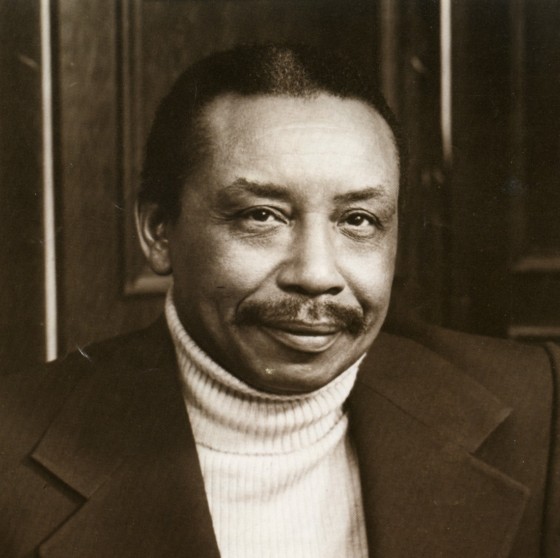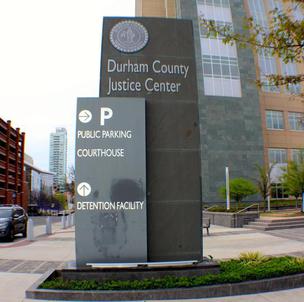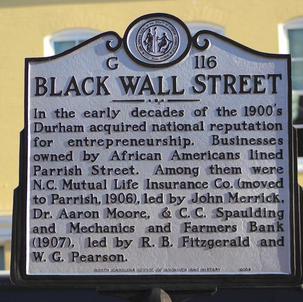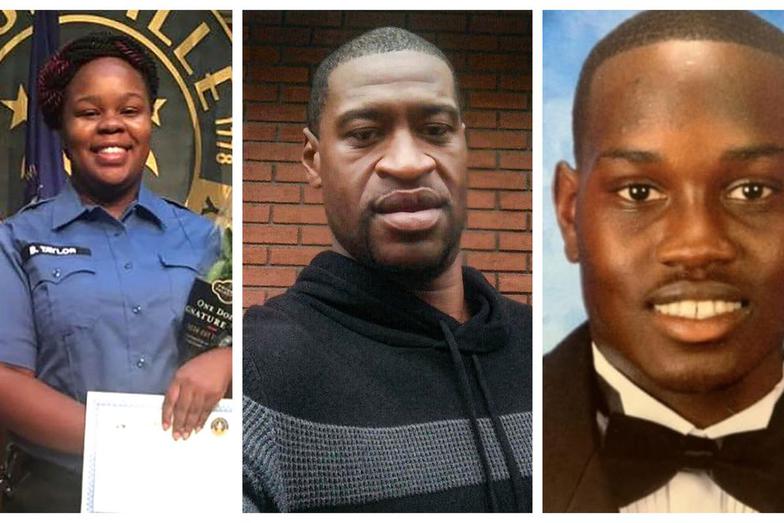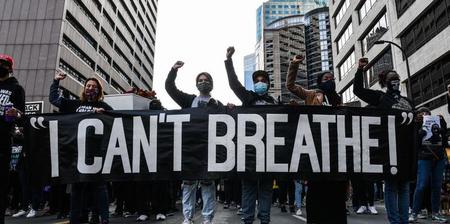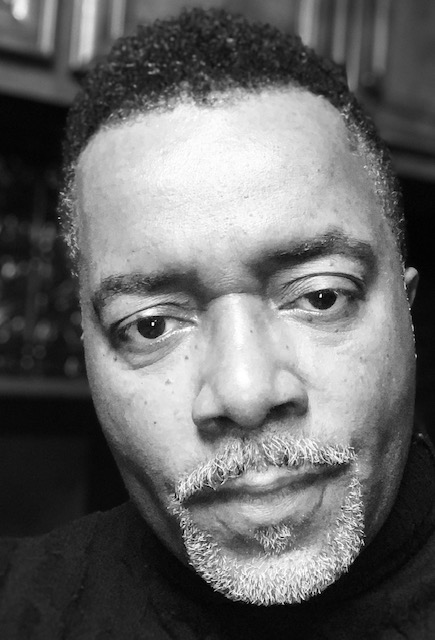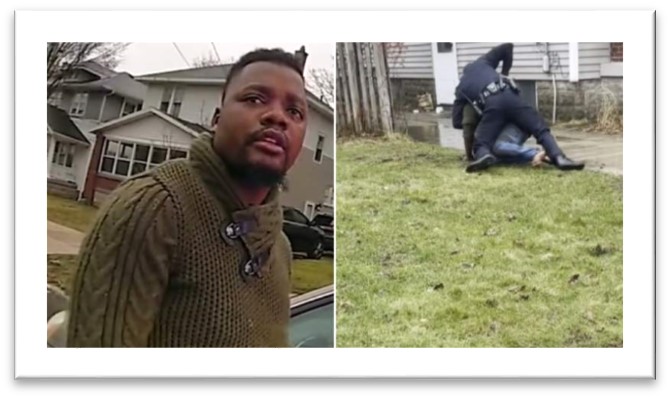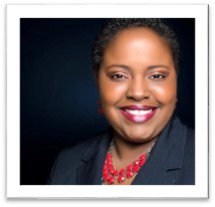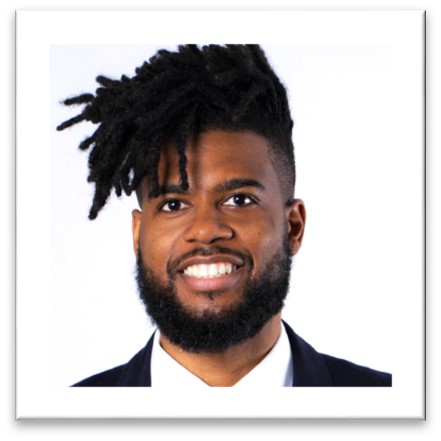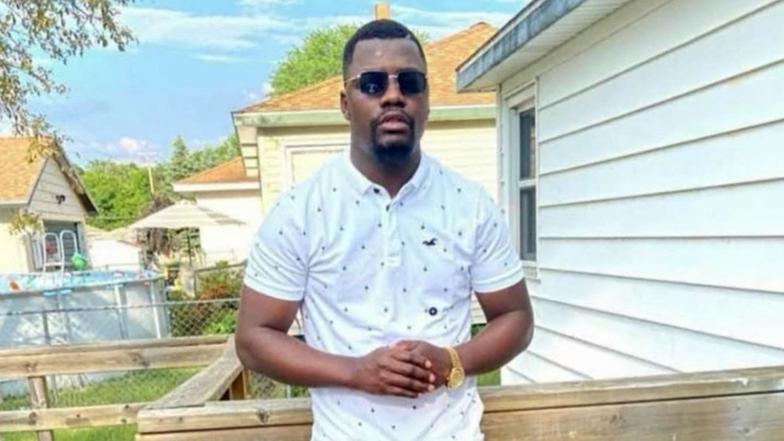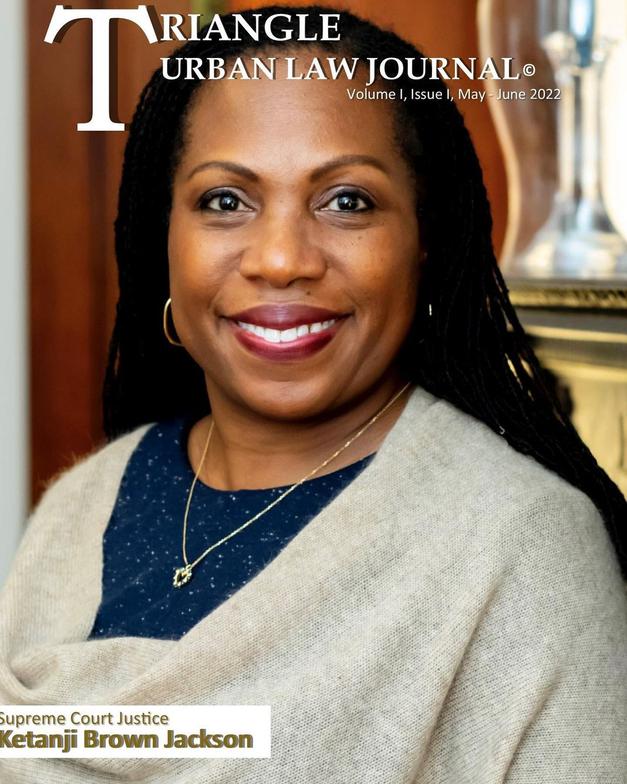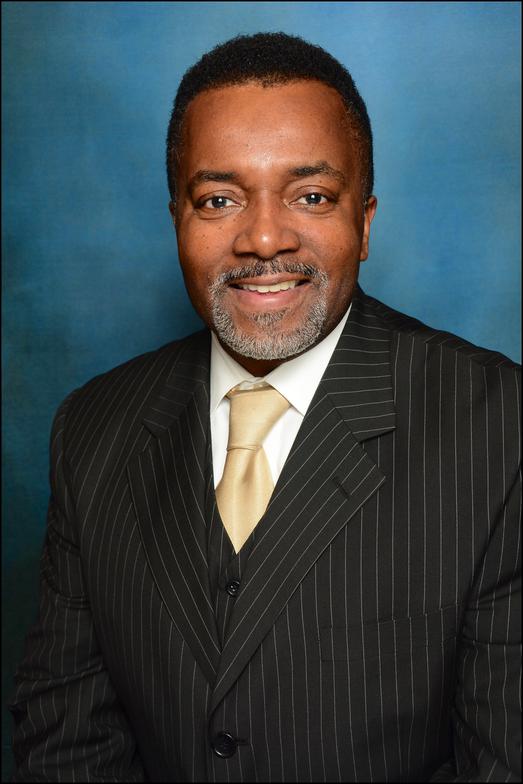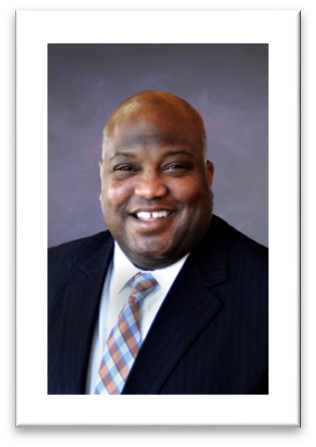TULJ News Archives
"Providing a Broader Perspective of News and Information for the Triangle's Legal Community"
Triangle Urban Law Journal - Copyright 2022 - A Beulah Project Publication - www.beulahproject.org
It has been quite a few years since I've jogged, walked or a bicycled in my neighborhood, alone that is. Why? Because I've come to accept the sobering reality that if my white neighbors cannot readily identify my black, male body, I will likely be perceived as a threat to their safety, and the ill-fated possibilities from there are just too numerous to mention here.
In fact, research from the Maryland Population Research Center found that black men who live in predominately white neighborhoods often avoid exercising outdoors because of fears that others will misunderstand their presence in the neighborhood. According to MPRC faculty associate, Rayshawn Ray, "being black and male subjectively infers being criminal," Ray stated.
So, armed with my intuition and research like that of Ray, more often than not, I'm usually accompanied by my wife, our teenage daughter and granddaughter, or no neighborhood walk, jog or bicycling for me.
Sometimes however, well into the night, my driveway with its moderately steep incline serves as my treadmill, where I power walk, back and forth until I'm completely exhausted.
Recently, while on one of my midnight power walks along the driveway, I began to contemplate the murder of Ahmaud Arbery, and the sadness and anger I felt as I plodded up and down my driveway, was almost too much to bare. I thought how freedom and citizenship carry very different meanings depending upon whether you are black or white.
Like most black men born before, and during the Civil Rights era, I have been subjected to all manner of profiling by white folks. and in many ways, like my contemporaries, I have become somewhat numb to the damage it has had on my psyche.
White racism is so pervasive that white folks no longer need to openly espouse it. It is engrained in our structures, both large and small. And those of us who are old enough to remember having been subject to its insidious and vile effect, police ourselves so that we can limit, when we can, some of the trauma it will inevitably cause us.
But Arbery, a much younger man than myself, grew up in a world where many young black men and women believe freedom and citizenship mean the same for them, as it does for their white counterparts.
I contend that it does not, and when young black men and women have to navigate through this society, alone, without the whites they've socialized with, or befriended through their school years, it is then, they realize that being free, and a citizen of these United States, holds two completely different meanings, one for whites, and one for blacks.
It's a hard truth for them to swallow. But, a truth nonetheless, and the anger and outrage that a great many young people are now expressing is sparked in part, I think, by feeling betrayed by a system that has failed to live up to the American creed of liberty, justice and equality for all.
Ahmaud Arbery did not have the benefit of "lived experiences" to aid him in considering whether his innocent trespass would be the impetus that would cause his tragic and untimely death. Nor should he have had to consider it!
If this country is truly the beacon of light for the rest of the world as it professes to be, then Ahmaud Arbery, Breonna Taylor, and George Floyd should still be alive. They are not, and that speaks volumes about the racist and hypocritical system in which we live.
In testimony before the U.S. House of Representatives last June, Andre M. Perry, a Brookings Institute fellow and the author of Know your Price: Valuing Black Lives and Property in America's Cities, stated that, "Racism is policy, rooted, antagonistic, past and present, and bent on debasing Black lives and property."
According to Perry, "the value of assets - buildings, schools, leadership - and land itself are inextricably linked to the perceptions of black people." Perry also asserts that there is still much to learn from our elders and ancestors.
"We should believe in our elders and ancestors who understood that this is a long fight that will probably continue beyond our lifetimes, and we must work, leverage voting, and engage civically so that our children and their children can reap the benefits of the American Dream - to demand, to make sure, that Black Lives Matter," Perry said.
Perry makes great points. But, I'm not totally sold on his remedy for inclusion. In fact, much of what Perry extols has been the strategy that we have employed since Reconstruction (1865-1877). A strategy that I believe has been too easy to combat - and a strategy that relies too heavily upon which political party wields the levers of power.
At the beginning of her lecture on cognitive dissonance, noted psychologist, Dr. Joy DeGruy first asks her audience whether there is such a thing as white racism. Responses are slow to come and somewhat muted, but the majority of the audience eventually says, yes. She then asks the audience whether they believe there is such a thing as black racism, responses are similar, and again, the majority answers, yes.
DeGruy takes her experiment a step further, and asks her audience to name ways in which white racism adversely impacts the lives of black people, as an entire group of people. Within seconds, the audience begins to shout back answers such as; wealth, healthcare, economics, education, criminal justice, etc. But, when the audience is asked how black racism impacts the lives of white people as an entire group of people, a deafening silence falls upon the room.
DeGruy's simple experiment is telling, and no matter how some on the right might try to spin it, there is no data, qualitative or quantitative that supports the idea that black people are in any way preventing white people from pursuing the American Dream.
On the other hand, there is data to support the notion that white racism, whether intentional or not, (Aspen Institute Study on Structural Racism) has impacted and continues to impact the lives of black people, and I would wager that very little change will occur until white people become anti-racist.
It is not enough that white folks claim to be repentant for theirs, and their father's sins of white racism, and to protest alongside black people. White people must begin to educate other white people about the pervasiveness of white racism and work to expose the people, and systems that continue to support the ideals of white supremacy.
The unjustified murders of Ahmaud Arbery, Breonna Taylor and George Floyd, have sparked protests in cities, large and small. But, until white America begins to dismantle the systems that promote white racism, there will no doubt be more unjustified killings of black people.
What's more, unlike in times past, this time I believe, white people will be judged either by their willingness to speak up on the issues that affect the lives of black people, or by their silence, making it known to all, that BLACK LIVES DON'T MATTER to them!
Kelvin De'Marcus Allen, Sr., M.A., J.D., is the Founder and Executive Director of the Beulah Project, Inc. A 501(c)(3) charitable organization based in Durham. N.C. He has served an Adjunct Professor at the Hussman School of Journalism and Media at the University of North Carolina, He is a North Carolina Dispute Resolution Commission Certified Superior Court Mediator, an Accredited VA Representative and a past Executive Committee member of the Juvenile Crime Prevention Council (Durham, N.C.). He is also a member of the FBI Citizen's Academy (Charlotte, N.C. Division).
In the midst of a global pandemic, the murders of Ahmaud Arbery, Breonna Taylor and George Floyd reminds us that White racism is still the greatest threat to our nation
by Kelvin De'Marcus Allen
To view the "White Racism" video commentary, click on the video.
Published Monday, June 1, 2020
Governor Youngkin’s War on
Black (American) History Rebuffed
Black History is American History, a joint initiative of the Leadership Conference Education Fund, the NAACP and People For the American Way wants Virginia residents to share stories of
support for an “inclusive curriculum,” which it says they’ll send to Gov. Glenn Youngkin’s office. It’s in response to an email address that Youngkin’s office set up early in his tenure as governor, allowing parents and students to report on the teaching of what the governor calls “inherently divisive concepts.”
Published Friday, May 6, 2022
Autopsy Shows Officer Shot Black Man in Back of Head, Family Lawyers Say
Attorneys for Patrick Lyoya’s family, a Black man shot dead by a white police officer in Grand Rapids, Mich., said that a private autopsy showed he was fatally shot in the back of the head by the officer after a brief struggle during a traffic stop. “There’s no question what killed this young man,” Dr. Spitz said. The pathologist, whose experience includes high-profile investigations such as the assassinations of President John F. Kennedy and Dr. Martin Luther King, Jr., said the only injury on Mr. Lyoya’s body was the bullet wound. The Grand Rapids police did not immediately respond to requests for comment.
Theresa Jean-Pierre Coy, a Tampa legal ’giant,’ dies at 41
When Theresa Jean-Pierre Coy joined the defense team that would tackle the high-profile case of a white man accused of shooting a Black man in an argument over a parking space, she was taken aback by the personal attacks that came her way.
Some called it shameful that Jean-Pierre Coy, a Black criminal defense attorney, could be part of such a case. For her, though, it
wasn’t so much a matter of race, but of ensuring that the U.S. Constitution was upheld and justice prevailed.
“You represent people not for who they are and what they’ve done,” she told the Tampa Bay Times in 2019. “But you represent them to make sure that the government is doing their job.”
Jean-Pierre Coy, known as a fighter for the rights of the accused, died after a recurrent bout with cancer. She was 41.
Source: Dan Sullivan, News Section, Theresa Jean-Pierre Coy, a Tampa legal ‘giant,’ dies at 41 (April 13, 2022) https://www.tampabay.com/news/tampa/2022/04/13/theresa-jean-pierre-coy-a-tampa-legal-giant-dies-at-41/
The Leadership Conference on Civil and Human Rights announced that it and its sister organization, The Leadership Conference Education Fund, have selected civil rights attorney and activist, and NBC News and MSNBC Legal Analyst Maya Wiley to assume the leadership of both organizations. The chairs of the two organizations’ boards made the announcement after a joint board meeting to ratify the consensus recommendation of a 15-member joint board search committee. Wiley will hold the titles of president and CEO of both organizations.
The chairs of the two organizations’ boards made the announcement after a joint board meeting to ratify the consensus recommendation of a 15-member joint board search committee. Wiley will hold the titles of president and CEO of both organizations.
“We cannot be more thrilled to welcome Maya Wiley to her new role,” said Judith Lichtman, chair of The Leadership Conference board. “She will bring passion, experience, and the leadership skills needed to tackle the challenges for the future. visit: www.civilrights.org
Kamau Butcher, Fellow for the People’s Coalition for Safety and Freedom, coordinates the People’s Coalition for Safety and Freedom, a campaign to dismantle the 1994 Crime Bill and replace it with legislation collectively imagined and drafted via a national popular education and policymaking forum series. Prior to joining PolicyLink,
Kamau worked as a staff attorney with Brooklyn Legal Services Corporation A’s group housing unit, representing tenant associations fighting harassment and displacement in Brooklyn. Previously, Kamau served as policy organizer with Bronx Defenders, where he co-founded the Bronx Defenders Organizing Project. Kamau holds a JD from City University of New York (CUNY) School of Law and a bachelor’s degree in Philosophy, Politics, and Law from the University of Southern California. For more information visit www.policylink.org.
FEATURE
Historic Supreme Court Pick Brings Experience and Impeccable Credentials to SCOTUS
By Kelvin De’Marcus Allen, MA., J.D.
Ketanji Brown Jackson’s nomination by President Joe Biden to the Supreme Court was not only historic, it was also controversial. In the end, Jackson’s judicial experience and impeccable credentials proved to be too powerful a mix to deny the first Black woman Supreme Court nominee a seat on the
nation’s highest court.
Jackson withstood intense questioning during her confirmation hearings, with some Republicans accusing her of being too lenient in imposing sentences in child pornography cases. On the second day of Judge Kentanji Brown Jackson’s confirmation hearings, Texas Republican Senator Ted Cruz insisted Jackson answer questions related to critical race theory. At one point, Cruz even asked Jackson if she believes babies are racist.
To many on the left, questions posed by Republicans during the confirmation hearings had very little to do with Jackson’s qualifications and more to do with using their time to set the stage for the Mid-term Elections.
Senator Cory Booker (D., N.J.) in reaction to the barrage of Republican attacks delivered an impassioned defense that brought Jackson to tears.
“You are worthy. You have earned this spot. You are a great American,” Booker told Jackson.
Booker, recounted how he was the fourth Black person to be elected to the Senate, defended Jackson’s qualifications, while providing a brief retelling of Jackson’s life story.
As Jackson wiped away tears, Booker continued: “You got here how every Black woman in America has gotten anywhere has done, by being … like Ginger Rogers said, ‘I did everything Fred Astaire did, but backwards in heels.’ So I’m just sitting here saying nobody’s stealing my joy. Nobody’s gonna make me angry.”
5 Reasons Why Mediation May Be a Better
Option Than Going to Trial
By Kelvin D. Allen, M.A., J.D., Mediator
Email: kda@kelvindallen.com
Did you know that upwards of ninety-five percent of civil litigation cases never make it to trial? The reality is that a very small percentage of cases actually go to trial.
According to the American Judges Association,
as many as 97% percent of civil cases that are filed are resolved by means other than by trial. https://amjudges.org.
While some cases are dismissed, a growing number of cases are resolved through mediation. In short, mediation has become the Court’s method of resolving civil disputes without the rigors and financial strain of trial.
History of Mediation in North Carolina
In 1991, the North Carolina General Assembly authorized the establishment of a pilot program designed to foster settlement of disputes filed as civil actions in superior court. Over a four-year period, researchers at the University of North Carolina found that the program did help a significant percentage of cases settle earlier than they would have without mediation. Researchers also found that parties liked the informality of mediation. Judges also expressed their support for mediation and reported that mediation helped courts better manage their caseloads and operate more efficiently.ᶦ
5 Reasons Why Mediation May Be a Better Option
Than Going To trial ²
1. Mediation helps you design your own solution
A neutral third party assists the parties in reaching a voluntary, mutually beneficial resolution. Mediation can resolve all issues important to the parties, not just the underlying legal dispute.
2. Mediation saves time and money
Mediation usually occurs early in the charge process and many mediations are completed in one meeting. Legal or other representation is optional but not required.
3. Mediation is confidential
All parties sign a confidentiality agreement. Information disclosed during mediation will not be revealed to anyone.
4. Mediation avoids litigation
Mediation costs less than a lawsuit and avoids the uncertainty of a judicial outcome.
5. Mediation is fair and neutral
Parties have an equal say in the process and they, not the mediator, decide the terms of the settlement. There is no determination of guilt or innocence in the process.
1. Settlement Conferences in Superior Court Civil Actions. Brochure. (N.C. Dispute Resolution Commission, Raleigh, N.C.). July 20, 2018.
2. U.S. Equal Opportunity Employment Commission, 10 Reasons to Mediate, https://www.eeoc.gov/10-reasons-mediate
Remembering Pauli Murray
she moved to New York City to attend Hunter College, and graduated with a Bachelor of Arts degree in English in 1933.
As a lawyer, Murray argued for civil rights and women's rights. National Association for the Advancement of Colored People (NAACP) Chief Counsel Thurgood Marshall called Murray's 1950 book, States' Laws on Race and Color, the "bible" of the civil rights movement.
Murray was appointed by President John F. Kennedy to serve on the 1961–1963 Presidential Commission on the Status of Women. In 1966, she was a co-founder of the National Organization for Women. Ruth Bader Ginsburg named Murray as a coauthor of a brief on the 1971 case Reed v. Reed, in recognition of her pioneering work on gender discrimination.
Pauli Murray died of pancreatic cancer on July 1, 1985 in the house she owned with lifelong friend Maida Kemp in Pittsburgh, Pennsylvania.
Source: Pauli Murray, https://en.wikipedia.org/wiki/Pauli_Murray
Anna Pauline "Pauli" Murray was an American civil rights activist, lawyer, gender equality advocate, Episcopal priest, and author.
Drawn to the ministry, in 1977 Murray was the first African-American woman to be ordained as an Episcopal priest, and one of the first women.
Born in Baltimore, Maryland, Murray was virtually orphaned when young, and she was raised mostly by her maternal grandparents in Durham, North Carolina. At the age of 16,
Black Tennessee Mayor Signs Proclamation
Declaring April Confederate History Month
Surrounded by white members of the Sons of Confederate Veterans, which says it celebrates the history of the Confederacy while denouncing racism, Livingston, Tennessee Mayor Curtis Hayes signed a proclamation last month declaring April as Confederate History Month. Hayes, who has no
record of party affiliation and has served as mayor for more than 15 years, has previously been recognized by the NAACP, receiving the group's Diversity Award at the Cookeville branch's Freedom Fund Award program last year. The Livingston Mayor is not the first to recognize April as Confederate History Month, as a slew of municipalities across the South have celebrated it since 1994.
